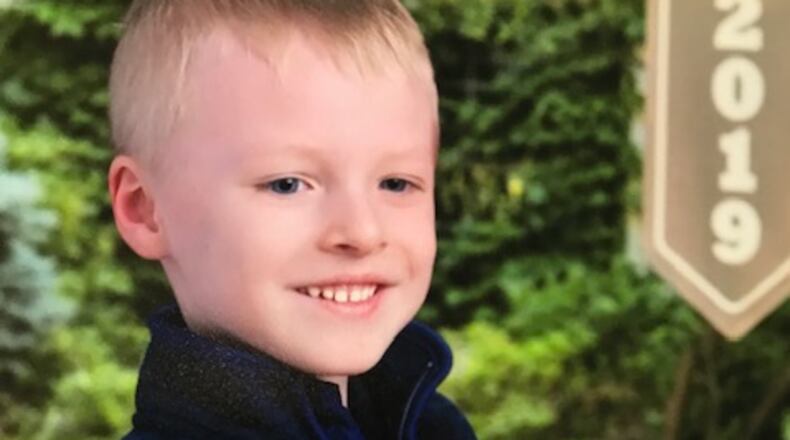And he has autism.
Like most people, what little I once knew about autism came from occasional television portrayals that showed children screaming. Out of control. Rejecting human contact while they were engrossed in repetitive actions. By movies such as “Rain Man,” in which Dustin Hoffman’s character is fixated on Judge Wapner and “The People’s Court,” but also is a savant with such incredible mathematical skills that his scheming brother takes him to Las Vegas in hopes of cashing in at the casinos.
My grandson is on the “high functioning” end of the autism spectrum, but he has had some of those characteristics. On one visit he had taken my hand and led me to the front door in a silent, but painfully clear, message that he wanted me to go out it and not come back. He has his fixations; on every visit, I have sat through more “Thomas the Train” and “Paw Patrol” videos than any adult should be forced to endure. (And his math skills are exceptional, although he’s still too short to sit at a blackjack table.)
But now he speaks not just words, but entire sentences. He happily goes to pre-school. He interacts with other children. It hasn’t been easy. It’s been months of speech therapy. Behavioral therapy. Occupational therapy. And patience by his parents. Infinite patience.
It’s estimated that two million people in this country are affected by autism spectrum disorder. Later last Saturday morning I joined thousands of them in a fundraising walk. The walkers were a cross-section of society. All ages, all colors, all economic levels. Many were accompanied by children, both with or without autism. What struck me was that I couldn’t tell the difference. Unlike other disorders, autism is not always visible.
While the event’s purpose was to raise money, it also was to raise awareness of autism beyond the stereotypes. To speak for children who are unable to speak for themselves. For children unable to call out, “Good morning, grandpa … good morning, grandpa.”
WHAT WE KNOW ABOUT AUTISM
• In 2018 the Centers for Disease Control determined that approximately 1 in 59 children is diagnosed with an autism spectrum disorder (ASD).
• Boys are four times more likely to be diagnosed with autism than girls.
• Most children were still being diagnosed after age 4, though autism can be reliably diagnosed as early as age 2.
• 31% of children with ASD have an intellectual disability.
• Autism affects all ethnic and socioeconomic groups.
• Minority groups tend to be diagnosed later and less often.
• There is no medical detection for autism.
• Research indicates that genetics are involved in the vast majority of cases.
• Children born to older parents are at a higher risk for having autism.
• Over the last two decades, extensive research has asked whether there is an link between childhood vaccinations and autism. The results of this research are clear: Vaccines do not cause autism.
Source: Autismspeaks.org
About the Author

